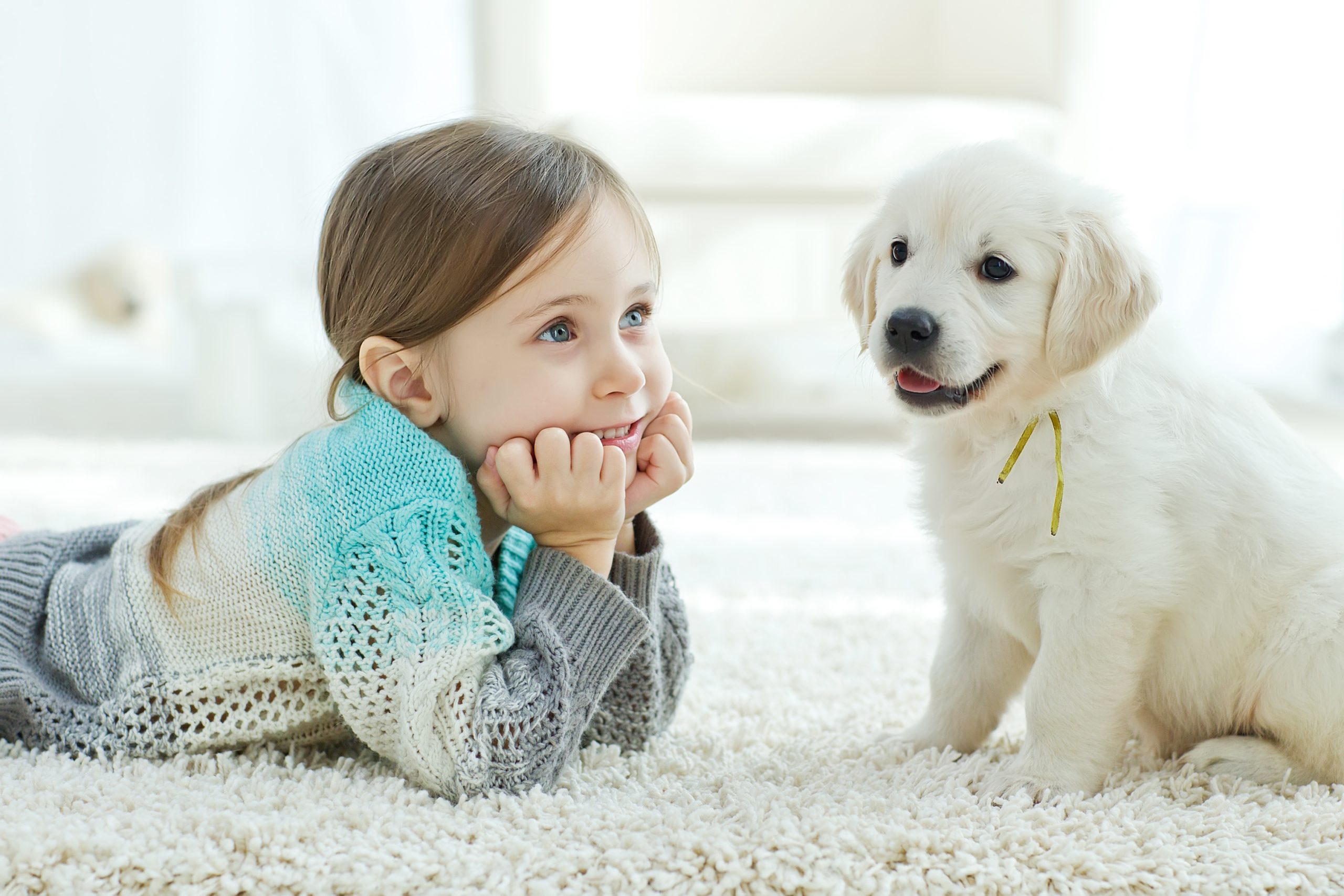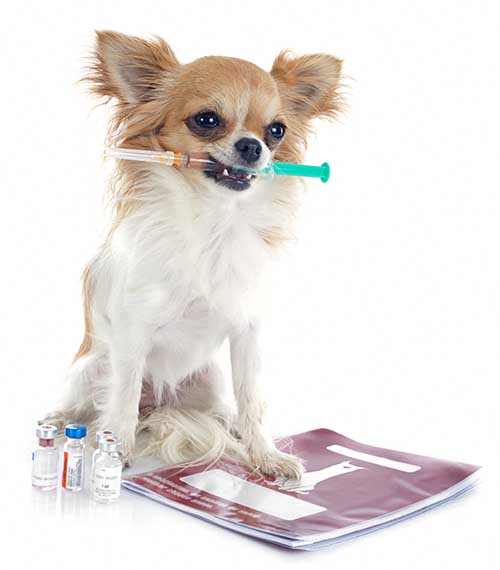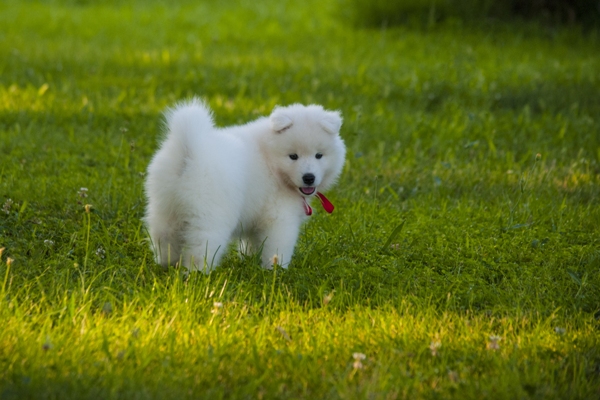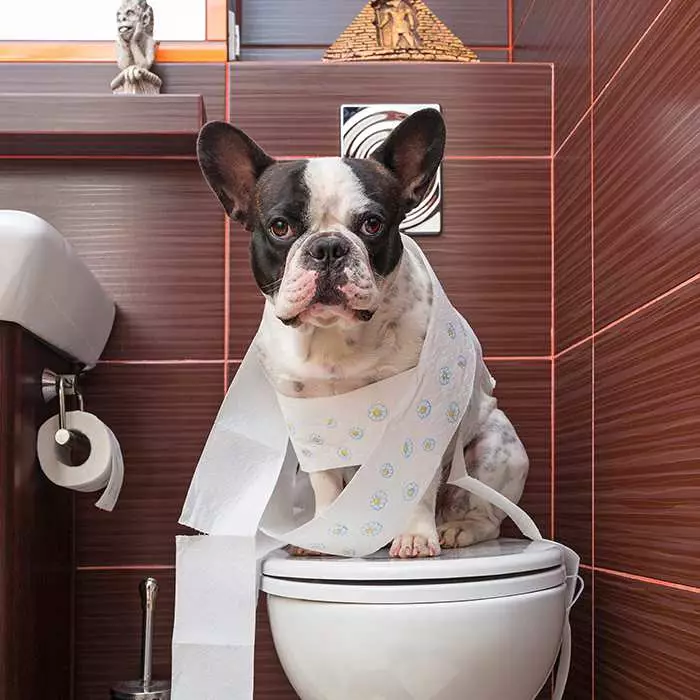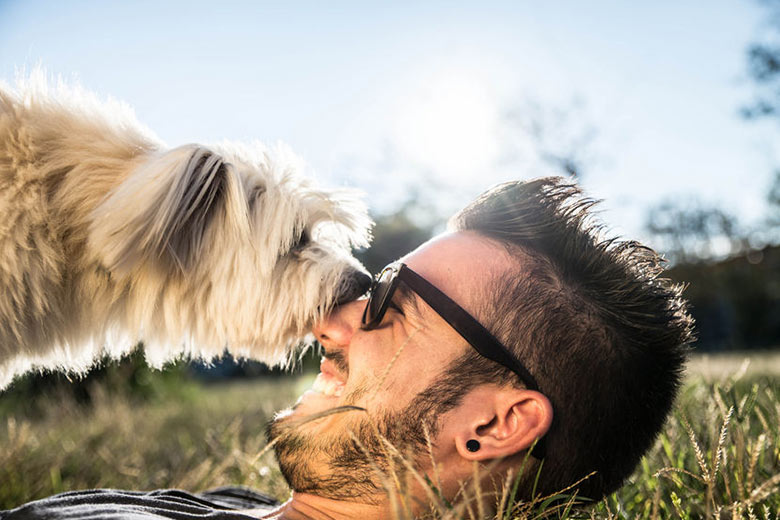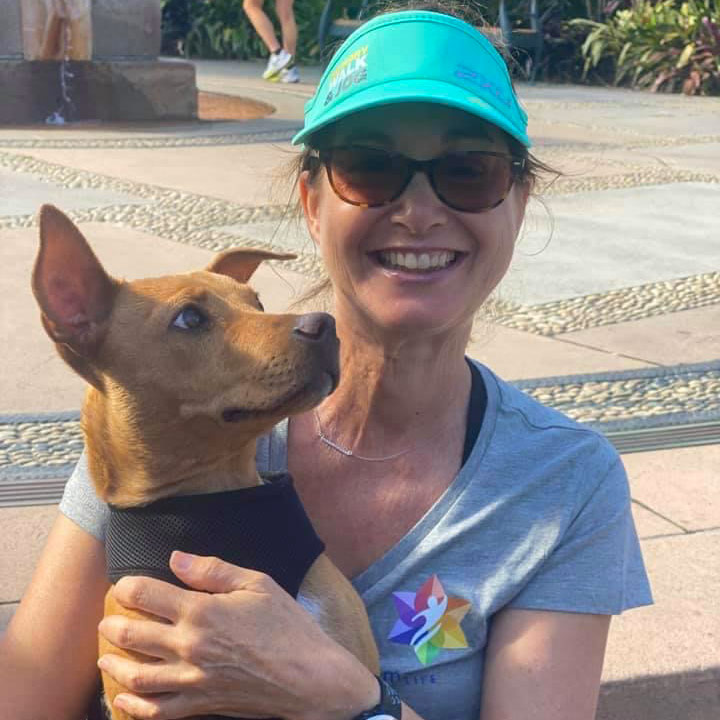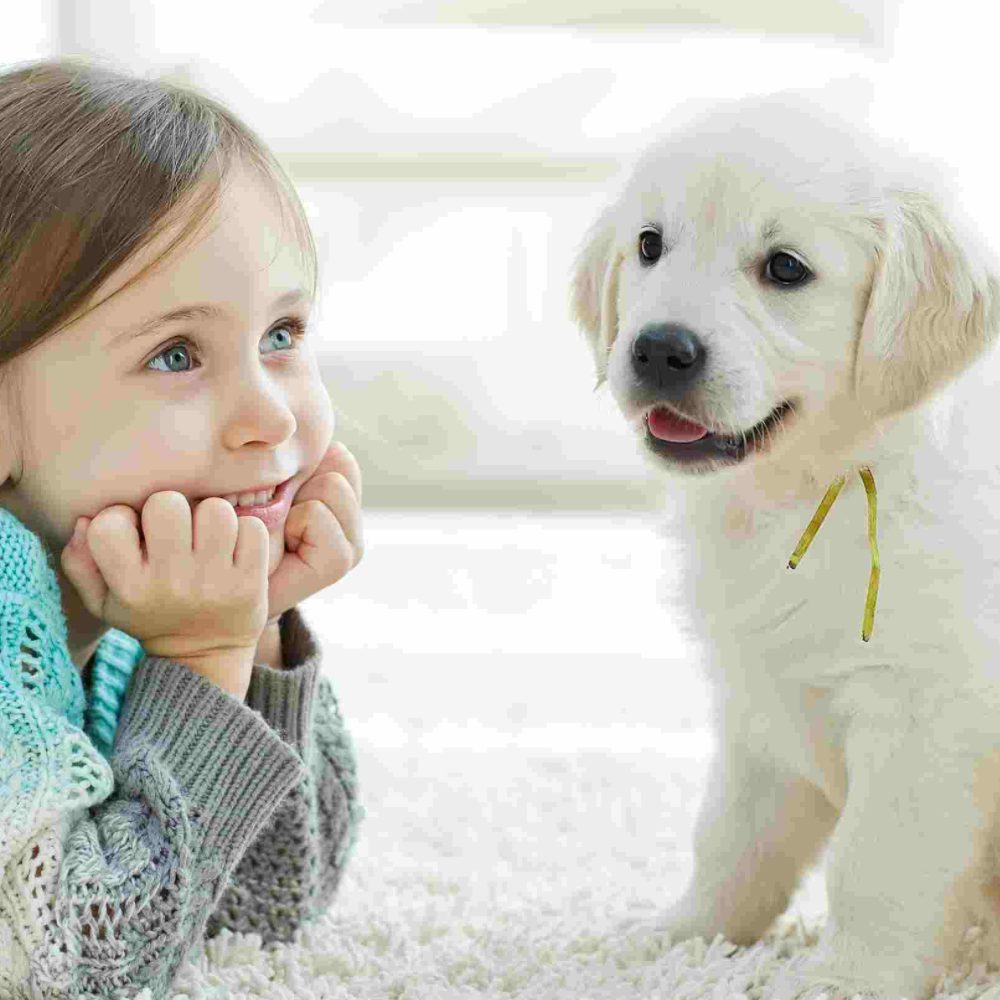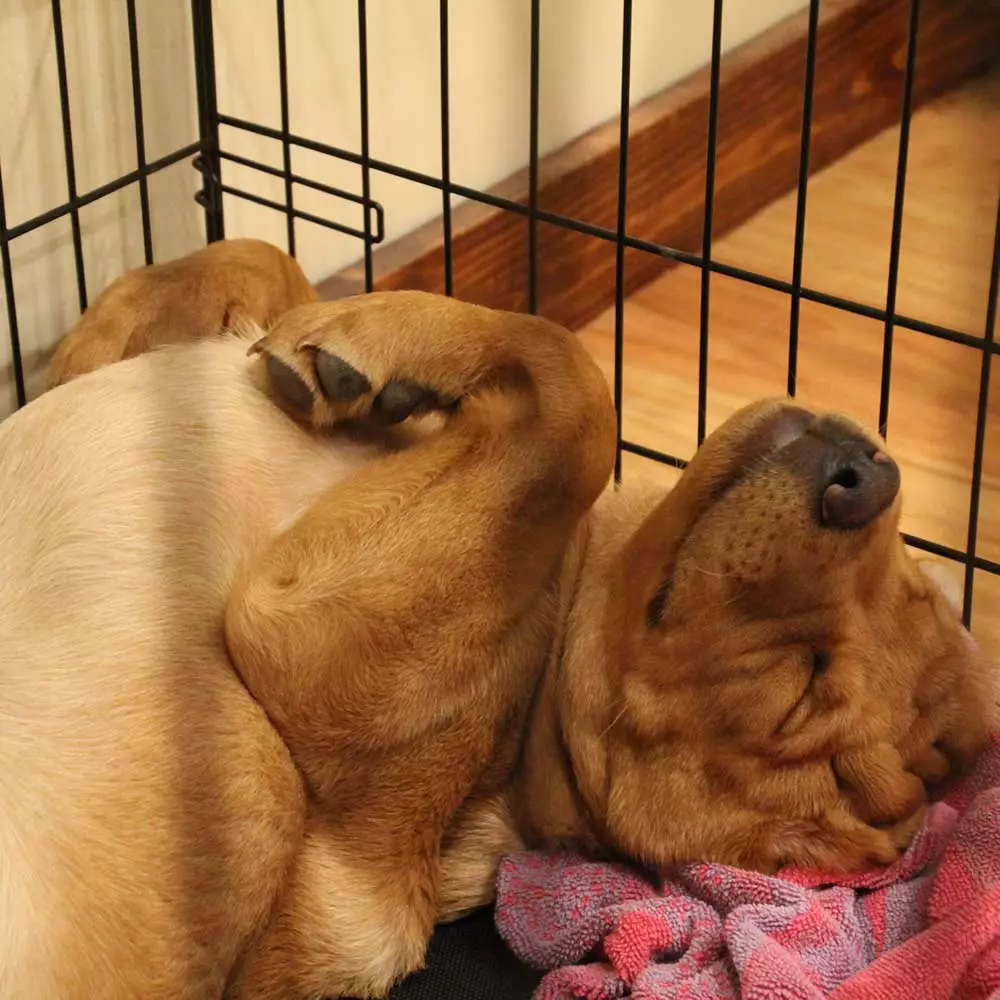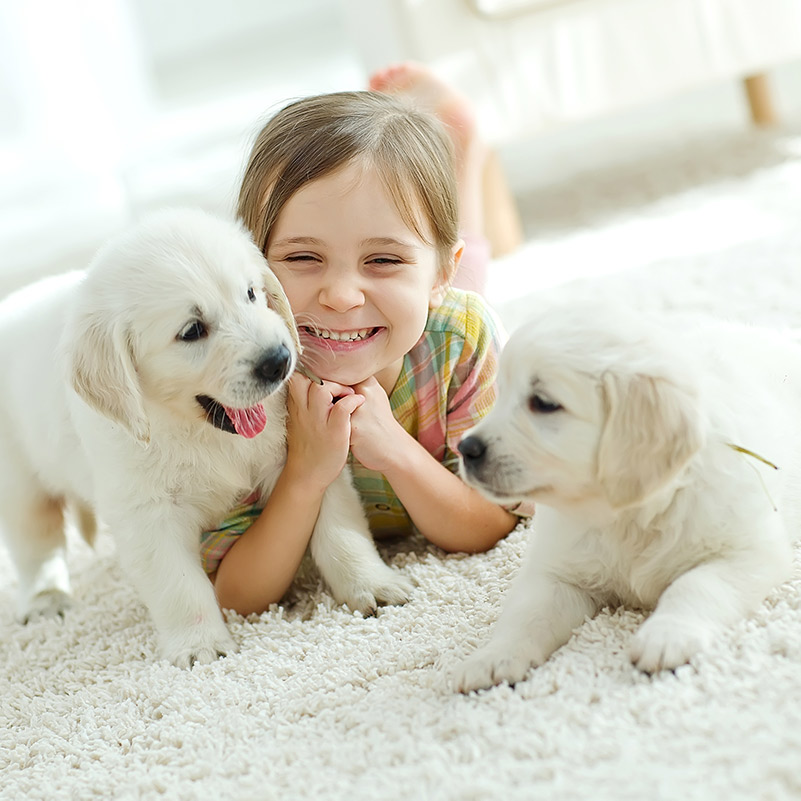How to prepare for your puppy’s first night at home
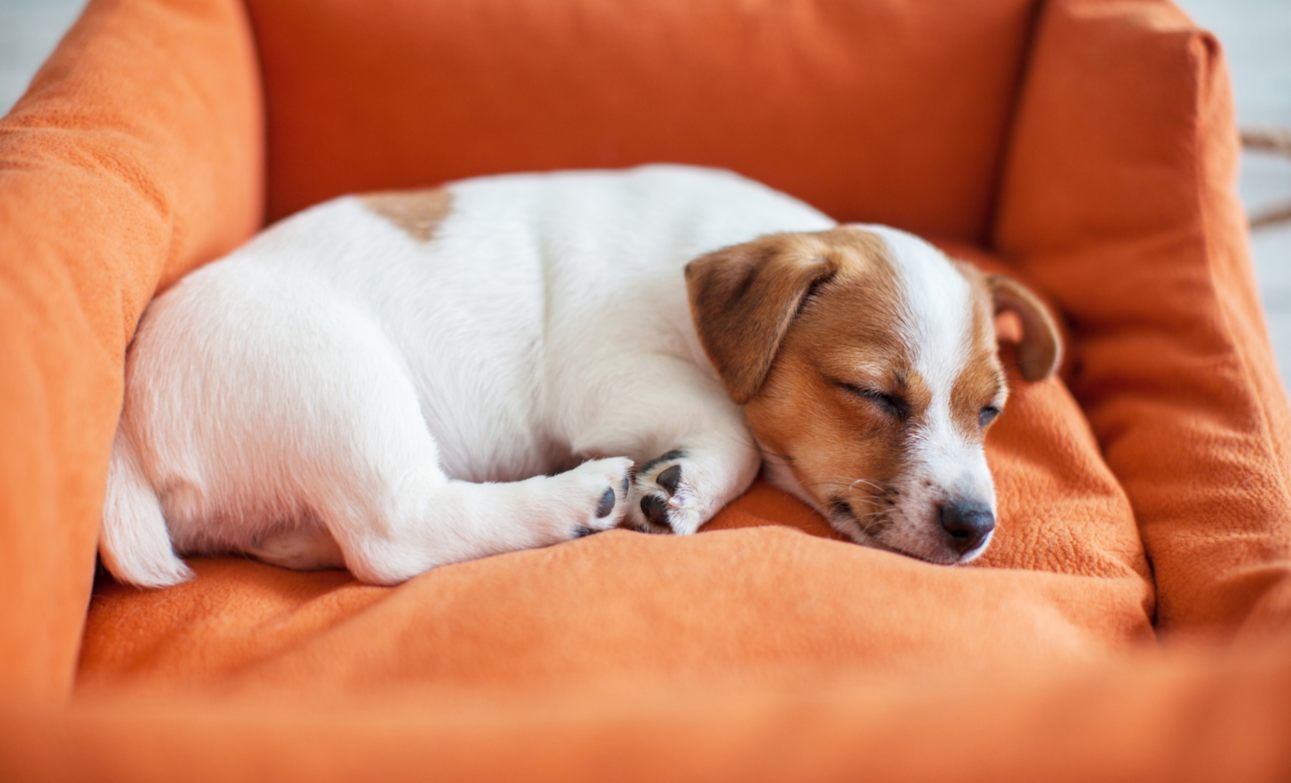
The first night at home with your new puppy will usually be brimming with excitement, but probably also a little anxiety. Don’t worry, it’s perfectly normal to be a little nervous about puppy’s first night at home. After all, you and your new pup don’t really know each other yet, and if you haven’t had a new puppy before, you may be wondering how to look after a puppy on its first night or how to make a puppy sleep on first night.
 And if you have owned a puppy before, you may have worrying memories of sleepless nights and soiled carpets on a previous puppy’s first night at home. You’re not wrong to feel a little concerned; the first night with new puppy can be really rough for both puppy and owner. New puppies need company, comfort, and lots of supervision. Most new puppy parents are unsure if they’re doing it right, particularly when it comes to toileting, sleeping and settling in, and there are likely to be some challenges in all of these areas.
And if you have owned a puppy before, you may have worrying memories of sleepless nights and soiled carpets on a previous puppy’s first night at home. You’re not wrong to feel a little concerned; the first night with new puppy can be really rough for both puppy and owner. New puppies need company, comfort, and lots of supervision. Most new puppy parents are unsure if they’re doing it right, particularly when it comes to toileting, sleeping and settling in, and there are likely to be some challenges in all of these areas.
The most important thing you can do to survive the first night as is to be well prepared for puppy’s first night at home. In this article we provide all the important information you need to prep for the first night to ensure pup feels calm and secure and settles well for sleep.
Preparations for the first night
Buy the necessary supplies
Make sure you have all the essential items you need for your puppy’s first night in new home. Here’s a basic checklist of must-have supplies for puppy’s first day and night:
- Food and water bowls
- High-quality puppy food
- Poo bags
- Dog bed
- Toys (suitable for puppy’s age and size)
- Healthy treats
- Playpen and/ or crate
- Puppy pads or puppy toilet to assist with toilet training
- Adjustable collar, harness and leash to correctly fit your puppy now without being too loose
- Collar tags with contact info
- Seatbelt buckle for the car or a crate
- Long-lasting, low fat chews like bully sticks to entertain and help settling your puppy in its pen or crate
Set up his sleeping spot
 Decide where your puppy’s bed will be and make it warm and inviting with a cosy bed and a snuggly toy. For the first few nights, we usually recommend that you sleep close by your new puppy, either by placing his bed or crate next to your bed or by sleeping on the couch next to his playpen. This is because puppies settle much better if they aren’t alone for the first few nights.
Decide where your puppy’s bed will be and make it warm and inviting with a cosy bed and a snuggly toy. For the first few nights, we usually recommend that you sleep close by your new puppy, either by placing his bed or crate next to your bed or by sleeping on the couch next to his playpen. This is because puppies settle much better if they aren’t alone for the first few nights.
Thereafter, you can gradually move his bed to where you want him to sleep long-term. This is a personal choice; some people like to have their puppy sleep in their bedroom, while others prefer for him to sleep in a different part of the house. Night-time is a good opportunity for puppies to spend time on their own, as this can assist with building independence and is a step towards preventing separation anxiety.
Create a familiar smell
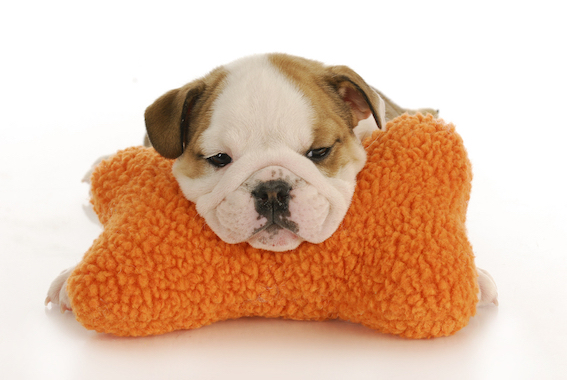
Dogs have an incredibly powerful sense of smell, which you can make use of to help your puppy feel more comfortable on puppy’s first night home. This is how: when you go to pick up your puppy to bring him home, take an old pillow, t-shirt or towel with you, and with the breeder’s permission, rub it on his mama dog and siblings. Alternatively, ask the breeder in advance if you can take some of their bedding home with you. These familiar scents will help to comfort him on his first night in a strange place full of unusual smells.
Prepare yourself mentally
Prepare yourself for the possibility of being woken up by your pup during his during the first night. Keep in mind that this baby animal has spent all of his life surrounded by the warm bodies of his mother and siblings. When we move a puppy into our home, we are separating him from his family, so it should be no surprise that there will be some initial sense of anxiety and loss experienced by the puppy. However, some puppies are so exhausted from the events of the day that they usually crash at night.
Separation stress is a normal part of acclimating to a new home and family, and gentle patience is necessary to help him through the adjustment. You will need to exercise plenty of patience, cope with being sleep-deprived for a short period of time, and at the same time help him settle in and feel at home as best you can.
How to make your new puppy feel more at home on the first night
Keep visitors away
Your puppy’s first night at home should be a quiet one. It’s a time for the puppy to get to know his new home and meet his new family. While it’s tempting to invite friends over to meet him right away and show off your new best friend, keep in mind that your puppy is in a brand-new place with people he doesn’t know. So, rather focus on making your first night with new puppy safe, quiet, and stress-free; there will be plenty of time for visitors later.
Familiarise him with his sleep area
The first night bringing a puppy home is a time to let him settle in and above all, to start becoming familiar with his new sleeping arrangements. To help him feel more secure, show him his bed well before bedtime and place some toys, kibble or treats in, so he enters it of his own accord. The more enticing you can make it, the more likely he is to settle in quietly. Take him back to his sleeping area a few more times before bedtime and reward him each time for going in it and staying there. Be positive and encouraging and take things slowly.
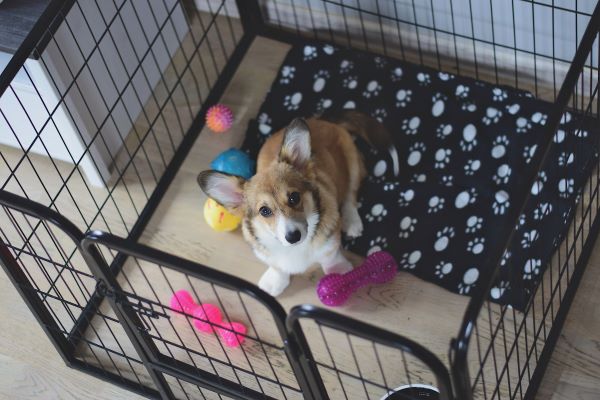
Night-time routine and toilet training
Bedtime routine
You want to start your puppy off on the right path by establishing a bedtime routine from the very beginning and sticking to it. While the first night or so may be challenging, a routine should help your puppy understand what’s expected when the household goes to sleep.
We recommend that you start preparing for bedtime well in advance – around three hours before. As a guide we suggest the following timeline:
- 3 – 4 hours before bedtime – give your puppy his dinner (depending on when he was fed by the breeder. If your puppy is as young as 6 weeks, he may still require a night feed at around 9 pm).
- 2 hours before bedtime – 15 minutes of active playtime or a little walk outside. Take away his water bowl.
- 1 hour before bedtime – gradually begin to calm him down.
- Every 30 to 60 minutes after last meal and right before bedtime – take him out to do his toileting, giving him plenty of opportunity to get rid of water and food before bed time.
Toilet training
Young puppies pee and poop a lot. Puppies have tiny bladders and do not have the bladder capacity to hold their urine for the entire night; they generally need to be taken to pee at least once per night in the early stages.
Have your pup’s bed close enough to yours so that you will hear him when he wakes during the night, as he probably needs to go outside for a potty break (fortunately, puppies don’t usually toilet where they sleep). Quickly and quietly and take him to his designated toileting area. Reward him calmly with a treat and praise but try not to get him excited or stimulated. As soon as he’s finished, put him back in his bed and he should go back to sleep.
Read our article on toilet training your puppy here.
Things to do on the first night
Start training
You will already begin puppy training on the first night with basics like toileting, learning his name and showing him where his bed is. Be consistent, persistent, and patient whenever you are puppy training. Praise and reward him whenever he does the right thing, such as peeing or pooping outside, responding to his name or going to his bed or crate.
Read our article on crate training your puppy here.
What to do if you are woken up during the night
It’s possible that you will be woken up during your puppy’s first night. Some puppies may even wake up a few times, while others are so exhausted from the events of the day that they usually crash at night.
If your puppy does wake or become unsettled during the night, we recommend that you put your hand on the crate or pen, talk softly to him and wait until he settles. Don’t take him out of the crate or pen while you are settling him back to sleep, unless he needs to toilet.
Be consistent
It’s really important to be consistent right from the start. As much as you may be feeling sorry for him, he needs to learn to sleep through the night as soon as possible. If you’ve decided he’s not going to sleep in your bed, don’t take him into your bed because you feel sorry for him when he’s crying in the middle of the night. Stick to the rules and routine you’ve decided on, no matter how difficult it may seem at the time; changing them up creates a confused puppy.
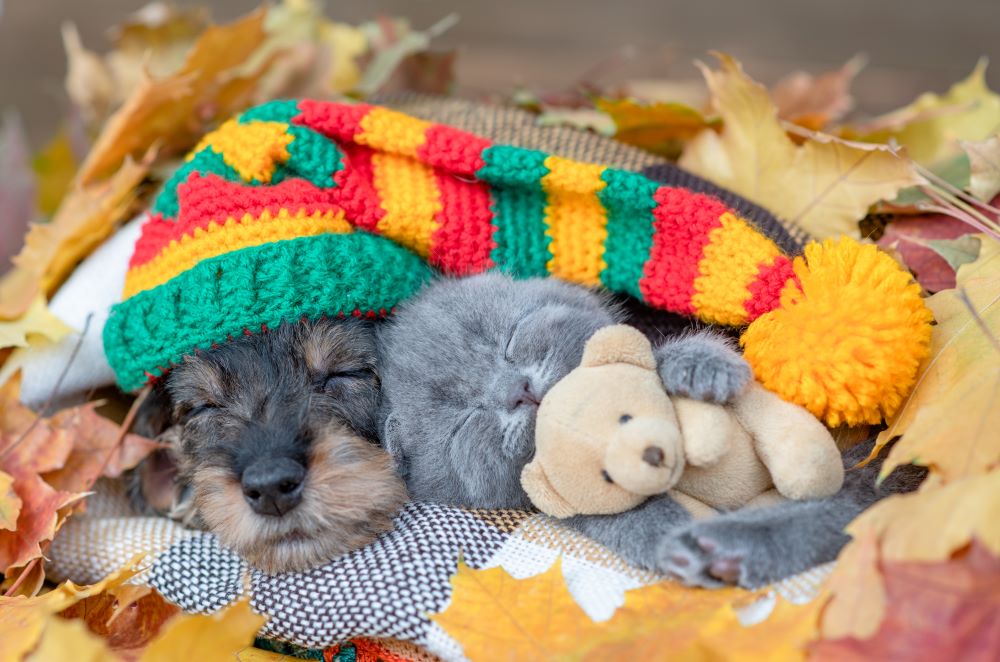
Things to avoid doing on the first night
Don’t take puppy into your bed
Try to avoid having the puppy sleep in bed with you on the first night. It is generally not recommended to have a young puppy sleep in your bed because it is more likely to create dependency issues. While it may seem like the easiest thing to do when he is barking, whimpering or crying in the night, by doing so he will quickly learn that when he is upset, you will come and put him into a warm cosy place. The next night, he will most likely repeat the behaviour and expect the same result, and if you try to resist, he may well intensify his behaviour, leading to a vicious cycle.
There is also a good chance that you may wake up to a toilet accident in your bed because of the little bladder control puppies have.
Don’t punish puppy for an accident
Don’t punish your puppy if he has an accident during the night (or at any other time, day or night). You want to keep him – and yourself – calm and unstressed, so that both of you can get back to sleep as soon as possible. Keep paper towel, enzymatic cleaning spray and a change of bedding handy for a quick clean up if necessary.
How to calm crying or whining pups
The first night at home puppy is likely to cry, whine or even bark during the night. This is because for his first two months of life, his nights were spent snuggling into his mum and siblings and feeling warm, comfortable and safe in their presence. Moving away from them to a new and unfamiliar environment is a huge change for him, and at night especially, he will feel lonely and will probably demonstrate this with whines and cries.
These are a few things that you can do that can help your puppy settle in and feel at home as soon as possible, which may help to reduce a stress-induced behaviour problem such as crying or whining:
- Ensure your puppy is tired before going to bed at night. A tired puppy will settle more easily.
- Have him sleep in a small crate or his own cosy bed next to your bed, or somewhere close enough that he can sense you and doesn’t feel isolated.
- Make sure his sleeping place is warm, comfortable and free of draughts.
- Give him some cosy, soft bedding and a stuffed dog toy to snuggle with. He is used to being surrounded by the warm bodies of his mum and siblings while he sleeps.
- If you brought home a piece of his bedding or a mama-scented t-shirt or towel, place it in his bed or crate. If not, place one of your old T-shirts or other soft item that smells of you in his bed. This will help prevent him from being overwhelmed by too many strange, new smells.
- Place a ticking clock under his bedding. This will sound like his mum’s heartbeat and give him some comfort.
- Consider purchasing a SmartPetLove Snuggle Puppy toy. With a pulsing heartbeat and disposable heat pack, this toy may provide comfort and relieve anxiety and related behaviours such as whining and crying.
- AdaptilCalm is a synthetic pheromone that may have a comforting effect on some dogs. You can try spraying this product on the puppy’s bed 10 minutes before sleep time to help him feel calmer and more relaxed.
- Sometimes music can help. Classical music has been shown to help settle dogs and there are plenty of dog calming playlists on Spotify to choose from.
- If he cries or become unsettled during the night, we recommend that you put your hand on the crate or pen, talk softly to him and wait until he settles. Don’t take him out of the crate or pen while you are settling him back to sleep, unless he needs to toilet.
If you can implement most of these suggestions, the cries and whines should stop sooner rather than later. The more you can ignore the behaviour knowing you’ve done all you can to help your pup to feel comfortable and more secure, the quicker these behaviours will disappear, and you and your puppy will sleep better and bond better.
Sweet dreams…
Now that you’re completely organised and know exactly what to prepare and what to do – and not do – on your first night bringing a puppy home, you can relax and enjoy your time together. With less stress and lots of praise, cuddles and positive reinforcement, you will be able to begin bonding right away, and hopefully get a good night’s sleep as well!


